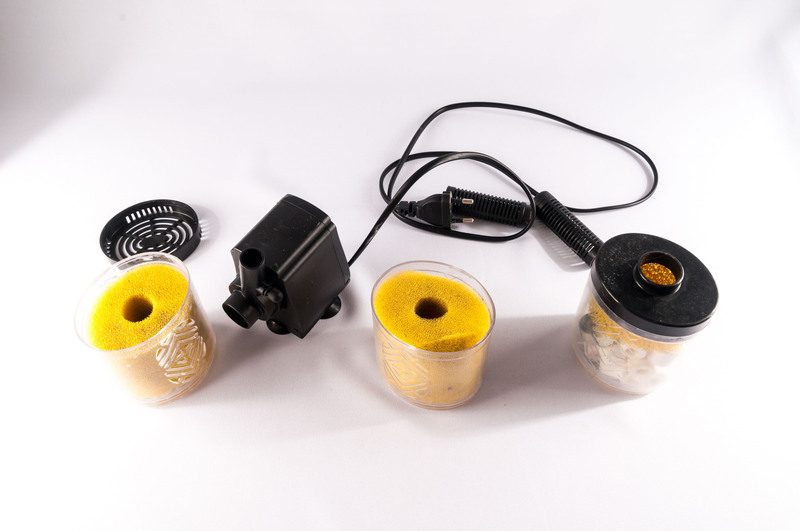Why Opting for Professionals Prevents Piano Damage
Posted on 25/05/2025
Why Opting for Professionals Prevents Piano Damage
A piano isn't just a beautiful instrument--it's a delicate and often priceless investment that demands the utmost care. Whether you own a family heirloom grand, a beloved upright, or a concert-worthy baby grand, understanding how to protect your piano is crucial. This comprehensive article explores why choosing professionals helps prevent piano damage, ensuring your instrument remains pristine and maintains its value for years to come.
The Complexity of Piano Construction
The modern piano is a marvel of engineering, containing over 12,000 individual parts with hundreds of tensioned strings and intricate wooden actions. Its design makes it both robust and extremely sensitive to improper handling, environmental changes, and unqualified repairs. From the delicate action mechanism to the massive cast-iron plate and rich wooden case, every part interacts harmoniously, but even *minor mistakes can lead to dire consequences*.
Why are Pianos so Vulnerable?
- Heavy, Yet Delicate: A grand piano can weigh up to 1,400 pounds yet remains susceptible to micro-cracks, warping, and string detuning from bumps or jolts.
- Sensitive Materials: Wood, felt, steel, brass, and ivory all react differently to movement, temperature, and humidity shifts.
- Tight Construction: Minuscule changes can throw an entire piano out of alignment, impacting touch and sound quality.
For these reasons, protecting your piano isn't just about moving it safely. Regular maintenance, proper tuning, and experienced repair work all require a specialized, professional approach.

Common Causes of Piano Damage
Many piano owners underestimate the potential hazards their instrument faces. Professional piano movers and technicians understand these risks and have tailored strategies to avoid them. Let's examine some frequent culprits behind piano damage:
- Improper Lifting and Moving: Pianos are not designed to withstand sideways pressure or being carried by their legs--mistakes amateurs often make.
- Poor Climate Control: Fluctuating humidity or exposure to direct sunlight causes cracks, warping, and finish degradation.
- DIY Repairs and Tuning: Untrained attempts at repair and tuning can instantly break strings, bend pins, or destroy hammers.
- Inadequate Packaging: Failing to pad or secure a piano during a move leads to scratches, dents, and thrown mechanisms.
- Neglect: Skipping regular maintenance encourages structural issues and aggravates existing weaknesses.
How Amateurs Typically Cause Piano Damage
Moving a piano is not like moving a couch or bookshelf. The bulky instrument's awkward center of gravity, sensitive parts, and glossy surfaces don't tolerate rough handling. Inexperienced individuals might:
- Push or drag the piano, stressing legs, pedals, and the frame
- Overtighten screws or hardware, cracking wood
- Expose the piano to moisture or extreme cold/heat
- Attempt tuning without the proper ear or tools
- Disassemble key parts and reassemble incorrectly
The Advantages of Hiring Professional Piano Movers
Entrusting your piano to expert movers may seem like an extra expense, but it's a wise investment that can save thousands of dollars in repairs later. Here's why opting for professionals to move your piano makes a world of difference:
Specialized Equipment & Professional Training
- Right Tools for the Job: Professionals use heavy-duty dollies, ramps, padding, and custom crates for safe transport.
- Teamwork: Moving a grand piano often requires 3-6 people who coordinate their actions using proven strategies.
- Disassembly & Reassembly: Experts know how to safely remove legs, pedals, and lids and reconstruct the piano at its new location.
Risk Reduction & Insurance Coverage
- Insured Protection: Most pro piano movers carry insurance against damage, offering peace of mind you don't get with amateurs.
- Route Analysis: They evaluate doorways, stairs, and tight spaces in advance for the safest path.
- Weather Readiness: Professionals plan for rain, snow, or heat to protect value finishes and materials.
Prevention of Both Obvious and Hidden Damage
Some harm, like a cracked leg or a dinged case, is easy to see. But internal misalignments, broken action parts, or detuned strings can take weeks to show symptoms and are often costlier to repair. Professional piano moving services understand the hidden hazards and take steps to mitigate every risk.
Piano Tuning and Maintenance: Why Only Pros Should Be Trusted
Like any fine instrument, a piano must be regularly tuned and serviced. This delicate process cannot be rushed or performed by untrained hands. Piano technicians are highly skilled and most are accredited by organizations such as the Piano Technicians Guild. Here's why their expertise is invaluable:
Precision Tuning
- Correct Tools: A professional tuner uses specialized mutes, levers, and electronic devices to ensure accurate pitch.
- Protecting Components: Hands-on expertise avoids overstressing strings or damaging the tuning pins and pinblock.
- Voice Consistency: Seasoned technicians adjust felt and voicing to maintain a consistent tone across octaves.
Skilled Repairs and Preventative Care
- Spotting Early Issues: Pros can detect cracks, loose pins, or swollen action parts before they become major problems.
- Safe Cleaning: Professional maintenance prevents dust and grit from accumulating in sensitive areas.
- Humidity Control: Technicians offer tips and tools (like humidifiers) to prevent wood distortion and string rust.
Long-Term Savings: Investing in Professional Piano Care
While it may seem cost-effective to handle moving, tuning, or basic repairs yourself, the risks often far outweigh the rewards. Here's why professional piano services prevent much higher costs down the road:
- Avoiding Major Repairs: A cracked soundboard or broken frame can cost thousands--or even total loss. Professional care avoids such disasters.
- Extending Instrument Life: Regular service from experts helps pianos last for generations, maintaining their sound and resale value.
- Insurance Requirements: Many homeowner or music studio policies require professional moving and service to honor coverage for valuable instruments.
- Enjoyable Playing Experience: Well-maintained pianos simply play and sound better, inspiring more frequent playing and practice.
How to Choose the Right Professional Piano Services
With so much at stake, it's vital to select the right professional piano movers and technicians. Consider the following when making your choice:
- Credentials: Look for certification and positive reviews. Members of industry organizations often maintain higher standards.
- Experience: Ask about their years in business, types of pianos handled, and any specialty services.
- Insurance: Confirm that your piano will be fully insured throughout the process.
- Detailed Estimates: Request a written quote with all services (including potential tuning and post-move checks) itemized.
- Clear Communication: Choose professionals who explain their procedures and answer your questions openly.
The Science of Preventing Piano Damage
Experienced movers and technicians integrate proven techniques to minimize risk at each step. *Here's how professional methods counteract common threats*:
Moving Techniques
- Weight Distribution: Proper lifting ensures even weight, avoiding twisted frames or broken legs.
- Vibration Control: Shock-absorbing pads and gentle handling prevent jarring of sensitive inner parts.
- Environmental Protection: Blankets, wraps, and climate-controlled transport preserve finishes and materials.
Service and Maintenance Strategies
- Consistent Schedule: Routine tuning and regulation reduce wear and prevent sudden breakdowns.
- Climate Management: Installation of humidity control systems in piano rooms prevents lacquer cracks and wood shifts.
- Early Detection: Through regular inspection, minor issues are addressed before escalating.

Frequently Asked Questions About Professional Piano Care
Is it ever safe to move a piano yourself?
Rarely. Even for short moves within the same home, pianos should only be shifted by those with experience. Hiring professional piano movers guarantees the safety of both the instrument and your property.
How often should a piano be serviced by a professional?
*At a minimum, a piano should be tuned twice a year* by a qualified technician. More frequent servicing is required for new pianos, those subject to heavy use, or in challenging climates.
What does professional piano moving service include?
Services typically encompass pre-move assessment, disassembly, secure packing, careful transportation, reassembly, and post-move tuning or inspection. Insurance is usually provided for added peace of mind.
Will insurance cover amateur movers?
Usually not. Most homeowner and studio policies stipulate professional movers for coverage. Amateur moving can void your insurance for piano-related damages.
Conclusion: The Smart Choice to Prevent Piano Damage
*Opting for professional piano care safeguards your cherished instrument* from both obvious and hidden harm. Whether you need it moved, tuned, or restored, entrusting specialists with this mission-critical task ensures longevity, superior sound, and protection of your investment.
The bottom line: Skimping on professional services may seem practical in the short term, but the true costs of piano damage--from major repairs to irreplaceable loss--are far higher. Choose qualified experts, and your piano will thank you for decades to come.
Latest Posts
Tackling House Moving with Zero Stress
Pack Smarter, Not Harder: Tips for Moving House
How to Clean Every Corner Before Relocation



